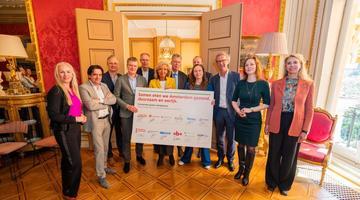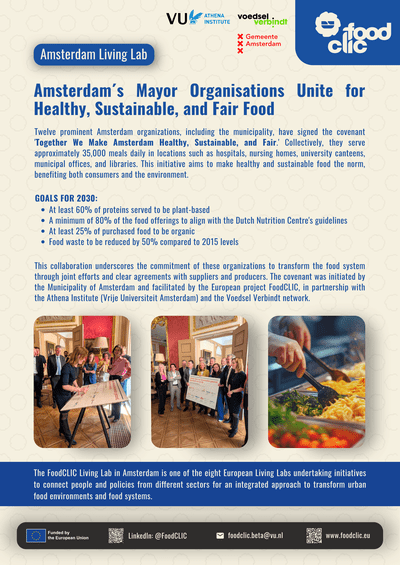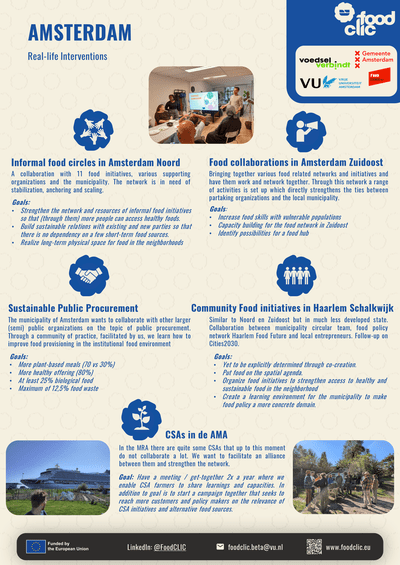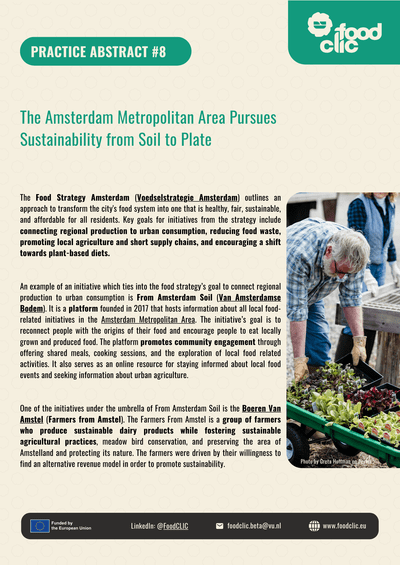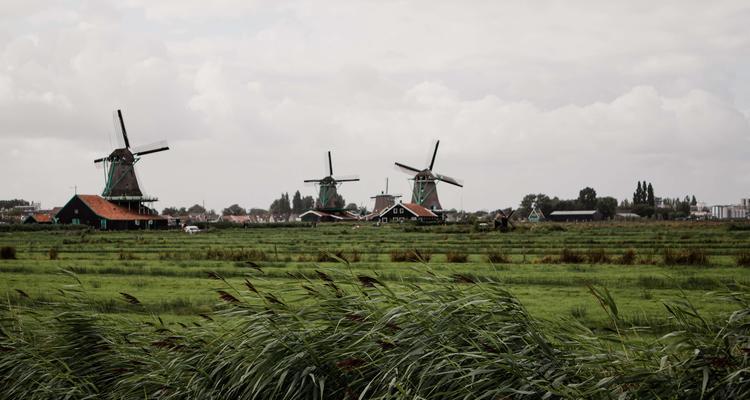
The Amsterdam city-region food system.
Due to the beneficial conditions of the Metropolitan Region of Amsterdam, situated in a fertile agricultural production area, the city-region’s agricultural productivity is high. Moreover, agri-food industries are well represented: from seed breeders to food processing. Research and innovation into agri-food is supported by a variety of companies and research institutes.
The city-regions lays a high focus on exporting products, such as milk, meat, vegetables, potatoes, onions and flowers. However, by contrast to this, 95% of the products consumed by the inhabitants are imported. Similarly, concentrate for livestock is primarily imported from South-America.
In response to these statistics, the municipality of Amsterdam has formulated the ambition to source 25% of the food consumed in the municipality from local sources by 2030. The cities of Almere and Amsterdam both adopted a food strategy. And two Food Policy Networks are operating in the city-region: Stichting Voedsel Verbindt (“food connects”) serves as a network for higher education institutes, policymakers and the private sectors. The Food Council of the Metropolitan Region connects citizen initiatives, start-ups and food cooperatives.

Quick facts:
The Metropolitan Region of Amsterdam stretches across thirty municipalities of two provinces in the Netherlands: Noord-Holland and Flevoland.
Approximately 2,5 million people live in the region, in larger cities, such as Amsterdam (the capital of the Netherlands), Almere, Haarlem and Hilversum, as well as smaller towns and rural areas.

Within FoodCLIC, the idea of a healthy food system revolves around food environments that allow everyone to access healthy and sustainable food. Sustainable food production, regional sourcing, food security, animal and environmental friendliness and appropriate remuneration for producers are key components of the future food system in the Metropolitan Region.
Food Policy Networks
Two Food Policy Networks operate in the Metropolitan Region of Amsterdam. First, there is the Food Council of the Metropolitan Region. The strength of the network lies in its proponents, who connect people on a personal basis, with the goal to create a more sustainable and healthy food system for everyone. Members of this Food Policy Network take an active role as practice partners for FoodCLIC.
Parallely, an institutionalised network of government actors, entrepreneurs, initiatives and higher education institutes act under the guise of Vodels Verbindt (“food connects”). The network aims to create a sustainable, regional and circular food system, by providing a stimulating platform for relevant agri-food initiatives. Currently, the network is involved in two different projects, namely the Data Value Centre Agri-food and FoodCLIC. For FoodCLIC, Voedsel Verbindt is acting as the official practice partner and coordinator for the Living Lab.
PROJECT PARTNERS LOCATED IN Amsterdam CITY-REGION:

Related Blog Articles
Related resources
FOODCLIC. We are connecting people, food, policy & places.
FoodCLIC is a four-year project funded by the EU. The project runs from September 2022 to February 2027. The acronym FoodCLIC stands for 'integrated urban FOOD policies – developing sustainability Co-benefits, spatial Linkages, social Inclusion and sectoral Connections to transform food systems in city-regions
